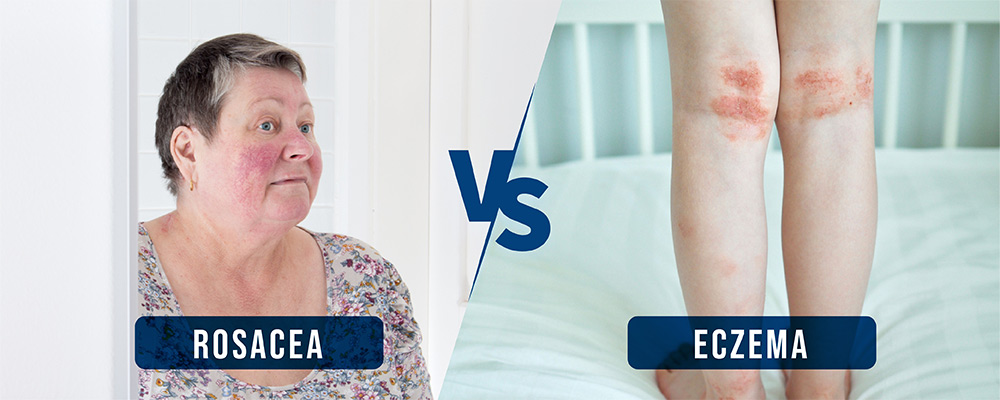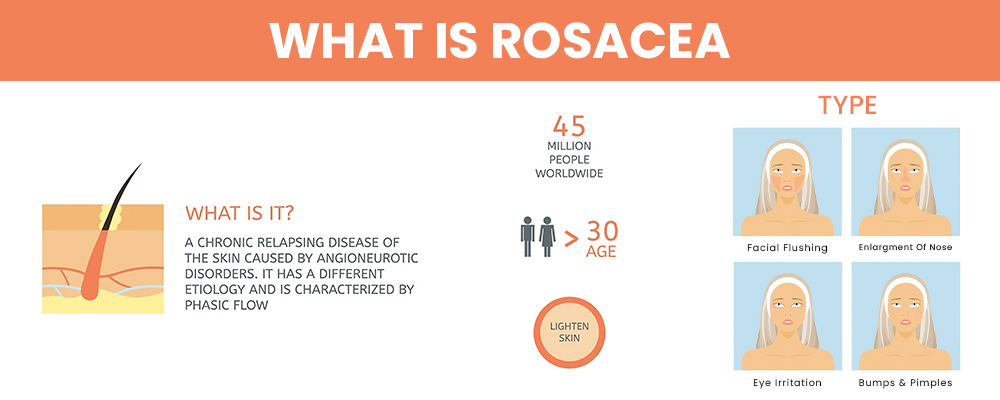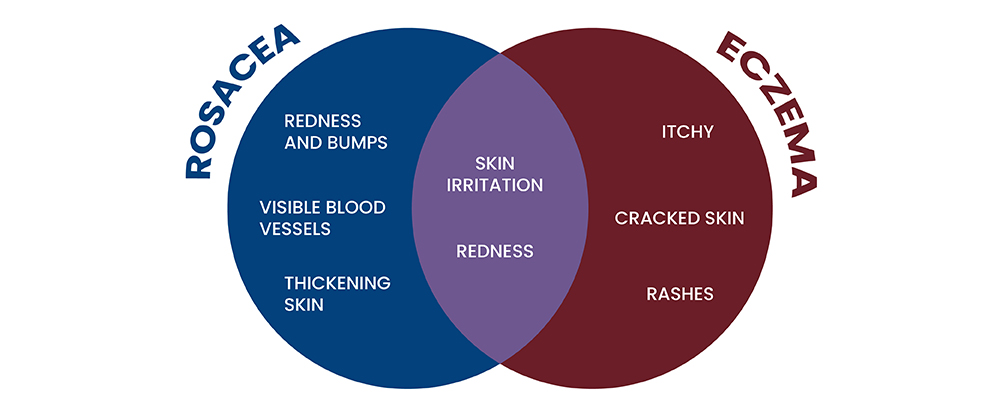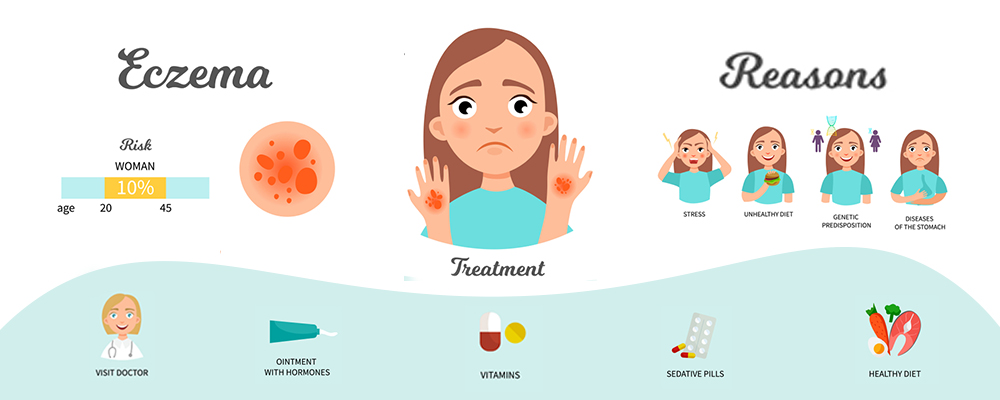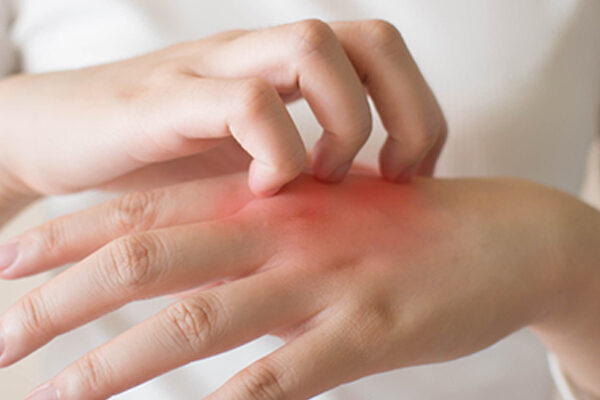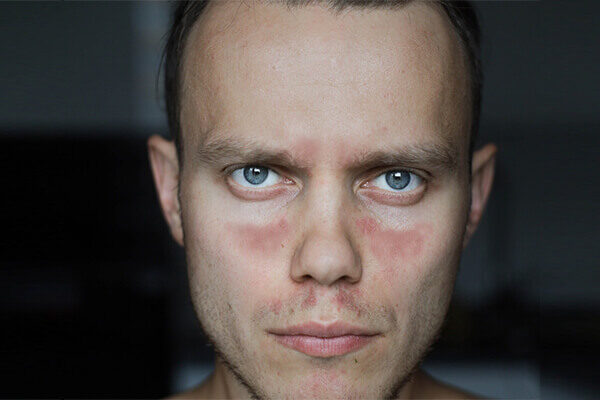Updated on September 22, 2023
Rosacea vs Eczema – Introduction
Rosacea and eczema are some of the most common dermatological conditions. While rosacea can affect 16 million Americans, 31.6 million (10.1%) of the U.S. population have some form of eczema. This means both of these conditions are highly prevalent and highlight the need to better understand these conditions. This blog will dive into the details of rosacea vs eczema and add to your existing knowledge of both of these conditions.
Revival Research Institute, as a leading clinical research institute in Michigan, aims to help individuals suffering from different dermatological conditions through its dermatology clinical trials. After reading through this blog, you may be able to decide whether our rosacea clinical trials or eczema clinical trials may be more suitable for you.
What is Rosacea?
Rosacea is a common condition of the skin that causes blushing or flushing, especially in the blood vessels of your face. It may also produce small, pus-filled bumps. These signs and symptoms may appear for weeks or months and then disappear. Rosacea is at times easily mistaken for other skin conditions like acne, or even natural ruddiness.
Rosacea can affect anyone. But it’s most common in Caucasian females between the ages of 30 and 60. There is no cure for rosacea at the moment, however, treatment can help regulate and minimize the indications and symptoms.
Now, let us further understand eczema by comparing rosacea vs eczema.
Also read: Lupus rash vs Rosacea.
What is Eczema?
Eczema is a chronic skin disease that can result in inflammation, redness, and skin irritation. Eczema commonly starts appearing early in life; however, this does not mean that other age groups are immune to it. One thing to note is that, unlike many other skin disorders, eczema is not contagious, so one should not worry about it spreading.
Atopic dermatitis makes the skin prone to extreme itchiness. Scratching further exacerbates the redness, swelling, and cracking of the skin resulting in clear fluid exudation, crusting, and scaling.
Researchers are unsure of the potential causes of eczema. They do however know that genetics, the immune system, and the environment play a crucial role in the disease. As of now, there are no definitive treatments for eczema.
Also read: Eczema vs. Scabies.
Rosacea vs Eczema
Now that we have established a basic understanding of what rosacea vs eczema is, let us go into more depth and compare symptoms and causes for both of these conditions.
Revival Research Institute is a prominent clinical research institute that is conducting both rosacea clinical trials and atopic dermatitis (eczema) clinical trials. If you do decide to participate in Revival Research Institute’s clinical trials, you can easily choose which one is more suitable for you.
Symptoms of Rosacea
The best point of starting our comparison of rosacea vs eczema is by understanding the symptoms of each condition. The symptoms of rosacea are:
- Facial blushing or flushing
- Prominent small blood vessels of your nose and cheeks break and become visible (spider veins)
- Swollen bumps resembling acne (sometimes containing pus)
- Burning sensation of the skin
- Dry, irritated, swollen eyes and eyelids (ocular rosacea)
- Enlarged nose (rhinophyma)
Symptoms of Eczema
One might think rosacea vs eczema symptoms might not differ since both of them are dermatological conditions, but they are dissimilar in their presentations. Eczema symptoms are as follows:
- Dry skin
- Itchy skin (Flexural eczema)
- Skin rash
- Bumps on your skin (Papular Eczema)
- Thick, leathery patches of skin
- Flaky, scaly, or crusty skin
- Swelling
When comparing rosacea vs eczema, it is worth noting that rosacea usually appears on the face while eczema can show up anywhere on the whole body, but the most common spots are:
- Hands
- Neck
- Elbows
- Ankles
- Knees
- Feet
- Face, especially cheeks
- In and around ears
- Lips
Other less common areas can be:
- Nipples
- Breasts (Breast Eczema)
- Folds of skin near the vagina (vulva)
- Penis
What causes Rosacea?
As mentioned in an earlier section of this blog, the cause of rosacea is not defined, but it is assumed that it could be due to an overactive immune system, genetics, environmental factors, or all three of these.
One thing that we do know is that there are certain factors that can cause flare-ups. These are:
- Hot drinks and spicy foods
- Red wine and other alcoholic beverages
- Temperature extremes
- Sun or wind
- Emotions
- Exercise
- Vasodilators
Some cosmetic, skin, or hair care products.
Here’s everything you need to know about Rosacea treatment and more.
Causes of Eczema
There are many differences in the causes of rosacea vs eczema. Just like rosacea, the exact cause of eczema remains unknown to this day. Researchers know that a change in the structure of the upper protective layer of the skin might cause it to lose moisture. This leads to dryness damage and inflammation of the skin.
Researchers do know that the following factors may contribute to alterations in the skin barrier, which may disrupt normal moisture control:
- Changes (mutations) in genes
- Problems with the immune system
- Exposure to different environmental stimuli such as tobacco smoke, air pollutants, fragrances and other compounds found in skin products and soaps.
Here’s All You Need To Know About Causes of Eczema Flare-ups.
The Takeaway
In summary, rosacea and eczema are two different types of common dermatological conditions. Each of these has its unique characteristics and complexities. By using knowledge from this informative blog, you will be in a better position to make informed decisions about your skin health, whether through clinical trials or conventional treatments. Knowledge remains your steadfast ally in the journey to optimal skin health. Understanding rosacea vs eczema differences is crucial for those who have these dermatological conditions. This blog has tried to guide you in uncovering the intricacies of these conditions while imparting you with the appropriate knowledge to make informed decisions about your skin health.
Revival Research Institute, a prominent clinical research institute in Michigan, is ever ready to assist individuals dealing with rosacea vs eczema through its dermatological clinical trials. Our state-of-the-art infrastructure and multiple research sites across the United States put us in a prime position to handle different types of clinical trials.

